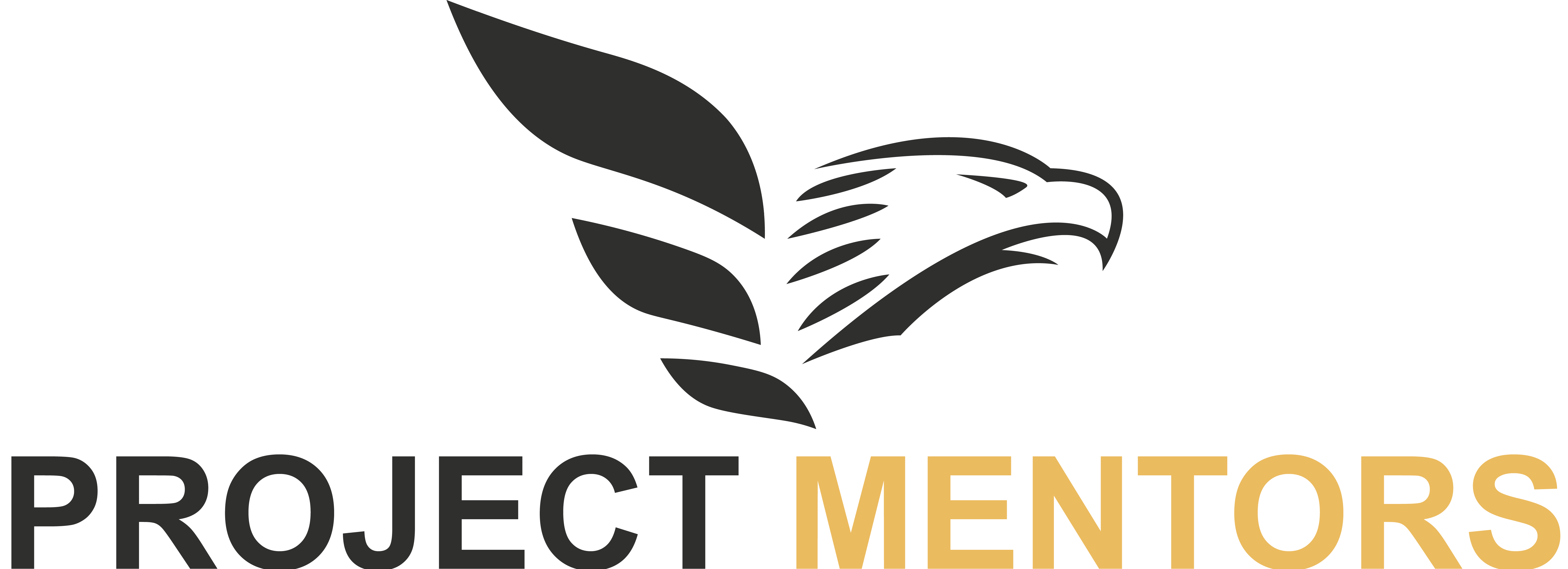Coaching, mentoring, training, and counseling are all forms of professional development that can help individuals and groups improve their performance and achieve their goals. However, each approach has its own unique characteristics and focuses on different aspects of development.
We at Project-Mentors™ got experience in all topics. However, our focus will be with mentoring as our preferred approach, yet, we use a lot of coaching processes and techniques during our mentor sessions.
Coaching is a process in which a coach helps an individual or group improve their performance or achieve specific goals. The coach works with the individual or group to identify areas of improvement, set goals, and develop a plan to achieve those goals. The coach also provides support, guidance, and feedback as the individual or group works to achieve their goals. Coaching is often used to help individuals improve their skills and performance in a specific area, such as leadership, communication, or problem-solving.
Mentoring is a relationship in which an experienced person (the mentor) guides and advises a less experienced person (the mentee) in their personal and professional development. The mentor provides guidance, advice, and support to the mentee as they navigate their career and personal development. Mentoring can be formal or informal, and can focus on a wide range of topics, including professional development, career advancement, and personal growth. The mentor-mentee relationship is often characterized by a high level of trust and open communication.
Training is a process in which an individual or group learns new skills or knowledge in order to improve their performance. Training can be formal or informal and can be provided in a wide range of formats, such as workshops, classes, and online courses. Training is often used to help individuals develop specific skills or knowledge, such as software skills, language skills, or safety procedures. Training can also be used to help organizations meet regulatory requirements or improve overall performance.
Counseling is a process in which a counselor helps an individual or group work through personal or psychological issues. The counselor works with the individual or group to identify the issues that are causing problems and develop a plan to address them. Counseling can be used to help individuals cope with personal issues such as stress, anxiety, or depression, and can also be used to help individuals address issues related to their work or personal life. counseling can also be used to help individuals and groups improve their communication and problem-solving skills.
In summary, coaching, mentoring, training, and counseling are all related but distinct forms of professional development that can help individuals and groups improve their performance and achieve their goals. Coaching focuses on helping individuals improve their skills and performance in a specific area, mentoring focuses on guiding and advising individuals in their personal and professional development, training focuses on helping individuals develop specific skills and knowledge, and counseling focuses on helping individuals work through personal or psychological issues.
Let’s meet for a free chemistry check and quick mentoring session. Cheers, Peter
ARTICLES
Latest STORIES
Authentic & empowering stories to feel, experience and strive with the content from people who wear the finisher T-shirt. Been there, done that.
Change Management in Today’s Business Environment – A Comprehensive Guide
Challenges in Managing Change for Project Management Professionals As businesses continue to evolve and embrace new technologies, project management professionals face a unique set of challenges in managing change. Traditional management models are being replaced by...
Strategic Leadership for Programme Managers: Mastering the Key Competency for Programme Success
The Importance of Leadership in Programme Management Leadership is one of the most critical competencies for Programme Managers. In fact, it is the second most important competency that is of paramount importance in Programme Management, after communication. I have...
Mastering the Art of Mentoring: A Guide to Cultivating Professional Relationships for Success
What is mentorship and how does it differ from other forms of support? As a Project Director, Subject Matter Expert, and Mentor, I am a firm believer in the power of mentoring. It is something that has personally benefited me both in my personal and professional life,...
The Power of Facilitation Skills for Business Transformation
The Evolution of Management Models in the Digital Age meAs the world of business continues to evolve, management models are also changing to become more efficient and effective with the help of AI and Web3 technology. This evolution requires project directors and...
Mastering Effective Communication: Strategies for Better Business Relationships
The Importance of Change Management in Project Management As a Project Director and Subject Matter Expert in project management, I believe that change is inevitable in projects and programmes, and it is essential to have the required skills to drive and navigate...
Mastering the Art of Negotiation and Effective Meetings: A Comprehensive Guide for Programme Management
Importance of Negotiation and Effective Meetings in Programme Management As a seasoned Project Director and Subject Matter Expert, I firmly believe that successful negotiation in Programme Management is not just a skill, but an art form. It involves a combination of...
JOIN OUR STORIES
Gain insights from mentors and increase your awareness and explore new options for your advancement.







